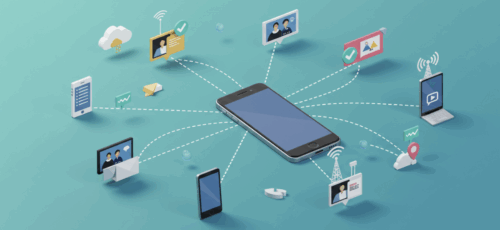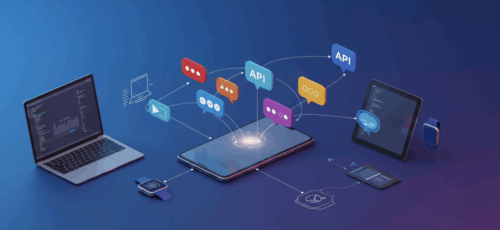As people make plans for future travel in 2021, it is important that hospitality groups explore ways to engage with consumers and make them feel safe. The COVID-19 pandemic has accelerated moves toward online reservations, curb-side pickup and online ordering. In order to adjust to these shifts in the industry, businesses must consider moving IT and communications services to the cloud. Outlined below are tips for hotels and restaurants to consider as they partner with their IT teams and carriers to integrate messaging tools that support contactless communications and reservations.
In recent years, cloud communication services have become an integral part of the enterprise digital evolution because they offer improved methods and new channels to engage with customers. New improvements include integration of voice and messaging services, tailored customer support, caller ID name management and streamlined E911 setup. As the COVID-19 pandemic has led consumers to increase their use of SMS and digital communications with businesses, the benefits of adopting cloud communication software and telecom Application Programming Interfaces (APIs) continue to prove valuable.
APIs combine numerous communication channels into one customer-facing application or SMS service. API-enabled SMS messaging is especially useful for hotel management and guests. For example, a hotel team can utilize a two-way messaging service with its concierge desk to connect with guests. Guests can text the concierge desk for any requests or questions they may have, rather than sourcing multiple phone numbers for room service, the front desk, valet, etc. This is a great benefit during the ongoing pandemic as guests do not need to leave the comfort and safety of their rooms to request assistance and they can communicate easily at their convenience, rather than being tied to a landline. This service eliminates customer pain points while automating the hotel’s services.
Telecom API-enabled messaging is also an important component of an omnichannel communications strategy. Omnichannel communications create a singular experience for consumers to contact a business across all the communications channels the company might offer. This approach provides a seamless experience for customers, no matter how or where they interact with a business. Through this model, customer service can be personalized, fast and intuitive by keeping track of previous customer service interactions. One omnichannel use case for restaurants is through the booking and reservation process. If the reservation was made on a third-party site like Yelp or OpenTable, omnichannel improvements – powered by APIs – allow real-time updates to be made from the third-party book site to the restaurant’s team.
Before a business can add messaging capabilities to its customer communications, it’s important to select a provider that will best meet the business’ needs. Outlined below are four basic criteria to keep top of mind when searching for the API provider. A misstep in one of these areas could lead to a business to find themselves locked-in with a provider that doesn’t support services its customers’ desire.
- Quality of service. To avoid mishaps, begin by identifying an API service provider with carrier-grade calling and messaging capabilities. This will ensure that only thoroughly tested services are integrated. Specifically, look for an API provider that has a diverse library of programming languages in its software developer kit (SDK). Having access to a portfolio of programming languages will help the business respond to future expansion of services without limitations.
- Ease of adoption. Second, prioritize API offerings that offer a simple and seamless adoption. Your API provider should quickly integrate new features to reduce downtime, provide options and support for consumer SMS services. Providers that offer 24/7 technical support should be top of mind.
- Added intelligence. Third, the API provider and services should add intelligence to your portfolio through data analytics and security. APIs have the potential to specialize customer services to better target the unique needs of each consumer – such as sending appointment reminders and recording call histories. Additionally, the API can increase security offerings through two-factor authentication and the masking of phone numbers.
- Better command of resources. Finally, the API service provider should enable better command of resources such as phone numbers and call data. It should allow organizations to instantly provision and configure voice and messaging services and provide access to data and other business processes that were previously inaccessible without a significant investment of time and resources.
As changes in COVID-19 restrictions and consumer patterns evolve, messaging services will help businesses more easily adjust their communications strategies. Telecom APIs enable features such as two-way messaging services, which limit face-to-face interactions between customers and staff.
Telecom APIs also provide a clear and defined way for systems to communicate with each other, allowing businesses to be nimble and adjust to the changing needs of their customers. The ease of implementation and the ability to scale services will be crucial for the hospitality industry to adjust to the complexities brought on by the coronavirus pandemic.






